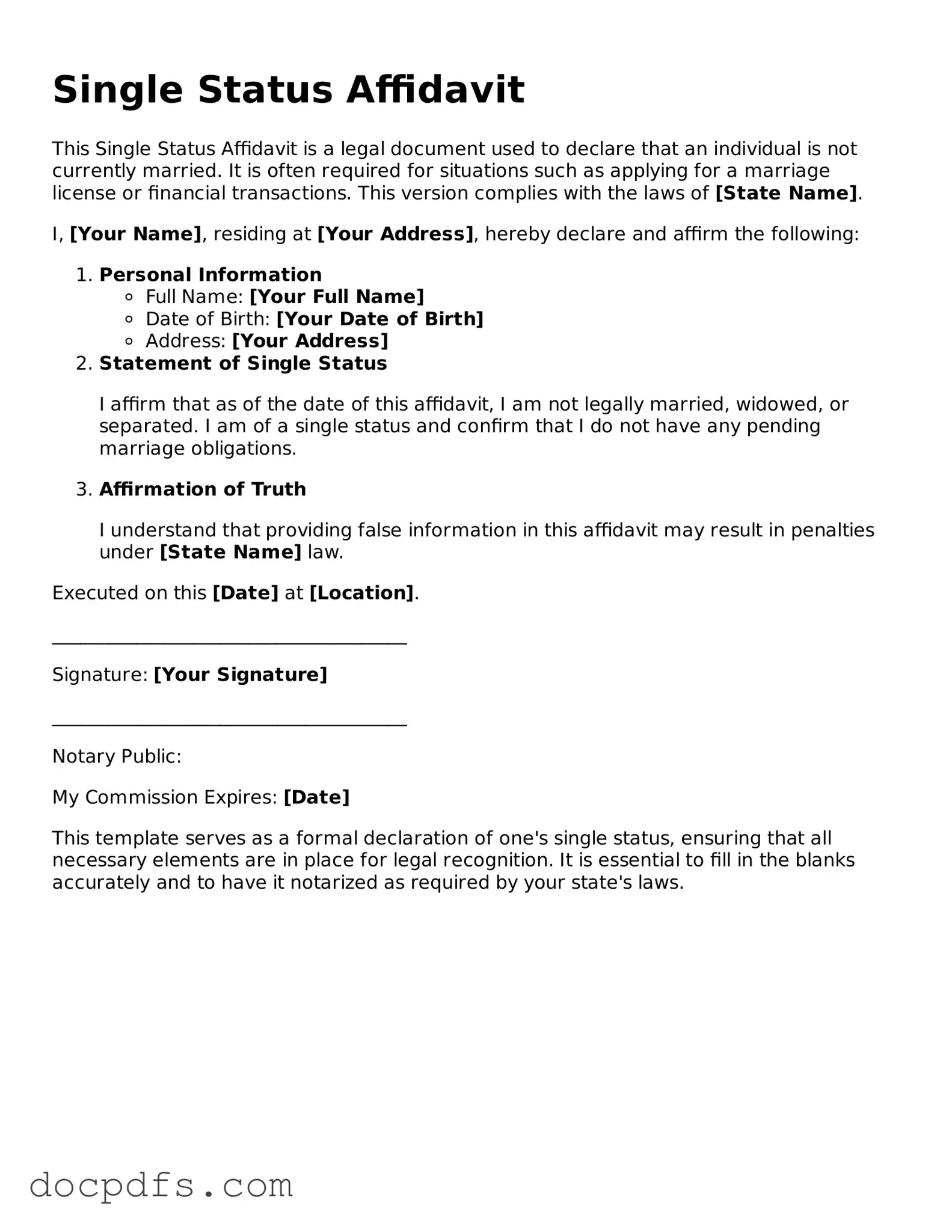Legal Single Status Affidavit Document
The Single Status Affidavit is a legal document that confirms an individual's unmarried status. This form is often required for various purposes, such as getting married abroad or applying for certain benefits. Understanding how to properly complete this affidavit can help ensure that your marital status is accurately represented.
Open Single Status Affidavit Editor Now

Legal Single Status Affidavit Document
Open Single Status Affidavit Editor Now

Open Single Status Affidavit Editor Now
or
⇓ Single Status Affidavit
Finish this form the fast way
Complete Single Status Affidavit online with a smooth editing experience.